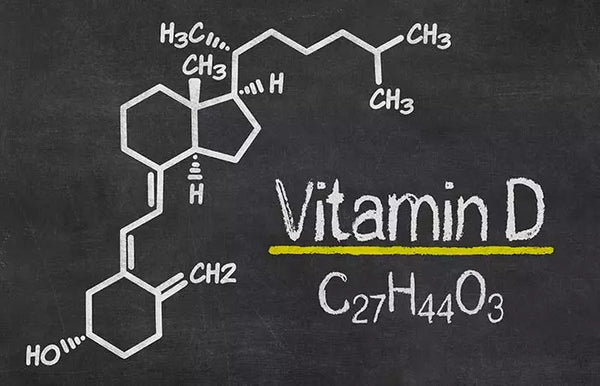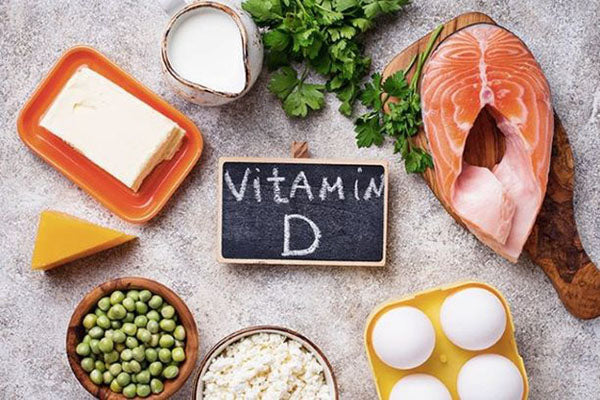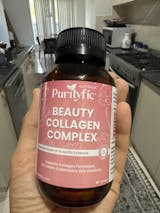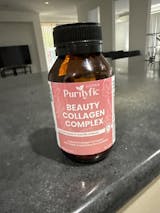
Essentials Nutrients You Need More Of After 50

The human body will continue to evolve and it must be realized that in every phase of life, it is important for us to pay attention to the nutritional needs of the body to ensure that our body has what it needs to stay healthy and develop, especially if it has entered late adulthood or around the age of 50 years and above.
Read: Vitamins and Minerals Maintain Metabolism
A founder of Australian health communications company, Appetite for Health explained that maintaining a nutrient-dense diet is essential for older adults because of the impact of food intake on health.
Years of research have shown that getting all the adequate and proper nutrients has a major effect on physical condition, cognitive condition, bone health, eye health, digestive function, blood vessel function and the immune system.
But they further explained that this is difficult for older adults to do because of their reduced ability to absorb and utilize many nutrients, including B12.
In addition, the elderly also take more drugs that will actually increase the risk of nutritional deficiencies. Because, certain drugs can interfere with the absorption of nutrients and some can even suppress appetite so that overall the nutrients obtained in the diet food are less.
Well, in this article we will discuss what nutrients are good for late adults or the elderly 50 years and above?
4 Essential Nutrients for the Elderly
Vitamin B6
Vitamin B6 helps the body use food for fuel as well as plays an important role in our immune function which makes it an essential nutrient for all ages.
However, for the elderly it is more difficult for their bodies to absorb nutrients. According to experts, the fact that the elderly aged 50 years and over tend to eat less foods that contain nutrients, therefore it is recommended for the elderly to consume additional B6. The need for vitamin B6 in elderly men over 51 years old is about 1.7 mg while in women it takes about 1.5 mg.
Vitamin B6 can be found in a wide variety of foods, the richest sources of vitamin B6 including fish, tuna and salmon, beef liver and other organ meats. You can also achieve the daily targets needed by the body by eating chicken breast and ground meat.
As for those of you who do not eat poultry, meat or fish, be sure to eat cereals fortified with B vitamins, potatoes, bananas, pumpkin and nuts. You can also take additional supplements as long as it is in accordance with your doctor's recommendations.
Protein
It is undeniable that we will lose some muscle mass with age even if we are strong and active though. Some studies estimate that we lose about 3-8% of muscle mass every decade after the age of 30!
Lifting weights and staying active can help slow down this process, as well as ensure you eat enough protein every day.
However, achieving goals is not always easy, especially for those aged 71 years and over. About 50% of women and 30% of men in this age group do not meet protein recommendations, according to the latest USDA Dietary Guidelines.
Therefore it is recommended for the elderly to consume amino acids as muscle building materials. Amino acids, especially leucine, have been shown to stimulate muscle growth and reduce muscle loss in the elderly.
Eat foods that contain leucine, such as milk, yogurt, lean meats, fish, edamame, tofu and other soy foods every day when you enter old age then make this a habit.
Vitamin D
Vitamin D has many benefits but one of the most important is that it helps the body to absorb calcium, a mineral that is a powerful bone building block.
Vitamin D and calcium together maintain bone strength as well as ward off conditions such as osteoporosis, which significantly increases the risk of fractures.
Vitamin D is important for all ages, but when you're older, it becomes very important. This is because vitamin D can prevent damage to bones or muscles when you fall.
Therefore it is recommended to eat foods that naturally contain vitamin D. Foods such as fatty fish meat, namely salmon, tuna and mackerel are the best sources. As for liver, beef, egg yolk and cheese have little vitamin D.
If none of these foods are suitable for you, then even vitamin-fortified milk, cereals, and yogurt can be an option. Because vitamin D is essential for healthy aging, it is advisable to consult a doctor regarding additional supplements that you can take.
Vitamin B12
As we get older, there may be more medicines that we will take. From certain drugs there are some that can inhibit the absorption of vitamin B12. Especially with age, the body's ability to absorb vitamin B12 is reduced.
Therefore it is recommended to eat foods rich in vitamin B12 such as liver, shellfish, beef, cereals fortified with vitamin B12, tuna and seafood. However, as an important note, these foods should not be consumed every day.
Thus the article about essential nutrition for people over the age of 50 years. This is very important to be the concern of all of us, so that our old age is always healthy and energized.








